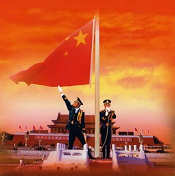 An interesting story in today’s Wall Street Journal details instances in which a number of U.S. companies imported items from China Precision Machinery Import Export Corporation despite the fact that CPMIEC is on the Office of Foreign Assets Control’s Specially Designated Nationals List. The reason for this, asserts the story, is that Chinese companies on the SDN list “have proved adept at creating aliases or subsidiary shell companies to mask their ownership.”
An interesting story in today’s Wall Street Journal details instances in which a number of U.S. companies imported items from China Precision Machinery Import Export Corporation despite the fact that CPMIEC is on the Office of Foreign Assets Control’s Specially Designated Nationals List. The reason for this, asserts the story, is that Chinese companies on the SDN list “have proved adept at creating aliases or subsidiary shell companies to mask their ownership.”
Consider this example cited in the article:
John Iliff, general manager of American Forge & Foundry, says the single shipment of oil-drainage tanks it received in 2006 from the CPMIEC unit set off no alarms. “Trading in illegal goods certainly never crossed our minds,” he says.
The shipment came from China JMM Import & Export Shanghai Pudong Corp., which didn’t appear on any sanctions list until Thursday. Records indicate the company shares an address and phone number with a CPMIEC unit that was previously banned: CPMIEC Shanghai Pudong Corp. The Treasury determined that the two companies are affiliated.
That designation of JMM Import & Export occurred just a few days ago on December 31, 2009, almost three years after the cited shipment. But there were several red flags that American companies might have picked up on before OFAC’s belated designation of the CPMIEC affiliate. Not only is there a similarity in the names of the two companies, but they shared the same street address. Standard procedure should be not only to check names on the SDN list but addresses as well.
But the larger issue here is that the obvious ease with which Chinese companies can morph into new entities effectively renders company-based sanctions almost completely ineffective. It’s obviously as easy for Chinese companies to rename themselves as it is for underage Chinese gymnasts to acquire new, earlier and eligible birth dates on official documents. I’m not so sure what the solution is here but it doesn’t appear to be imposing penalties or additional compliance obligations on U.S. companies that deal with affiliates of companies on the SDN list.
 Permalink
Permalink
Copyright © 2010 Clif Burns. All Rights Reserved.
(No republication, syndication or use permitted without my consent.)

 Posted by
Posted by  Category:
Category: 

